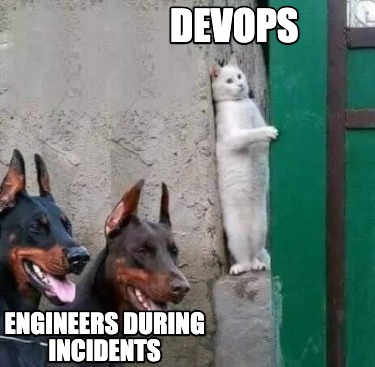In 2018 I was hired as a DevOps Engineer; it seemed like the perfect direction for my career. I’ve worked most of my professional life as support, sys admin, or network engineering; I’ve really wanted to go in the direction of development, but never had the chance up till now. DevOps, as I understood the term then, seemed like the perfect way to leverage skills I had and start getting the skills I wanted. So I eagerly accepted the position.
My first step as DevOps was to start reading DevOps books, like “The DevOps Handbook”; and what I started learning, was that everyone was using this term differently and most incorrectly. DevOps is neither a title or a solution; it’s supposed to be a philosophy, a way of running your projects.
One of the advantages of the company I’m currently at: we don’t really have a 24/7 production environment that we need to worry about. Our CI/CD Jenkins Cluster is doing the CI part, but not really the CD part. So, there are no calls at 3AM to report that the service is down. And I don’t miss that at all. I did a year at an MMO game publisher, and that was not great.
So, I’ve been getting slowly better at doing Jenkins stuff; and this company is my first exposure with JBoss and Wildfly, as well as build tools like Maven. I still need, however, to start working on those development skills that I want. I’ve also learned that what we are doing is kind of out-dated; AWS and Terraform seems to be where everyone is now: Infra as Code. Having mucked about with metal servers and seeing the transition to virtual and now the promise of things like Terraform, well, it’s pretty exciting. I love the idea of doing deployments that would have taken weeks of planning with the stroke of a key. Less futzzing with org silos and bureaucracy and more coding for the win.
So, I’ve learned that I’m not a DevOps Engineer; right now, I’m more of a Site Reliability Engineer, or SRE. Maybe one day I’ll reach something like Full Stack DevOps Mage; that would be pretty cool.

Post a Comment